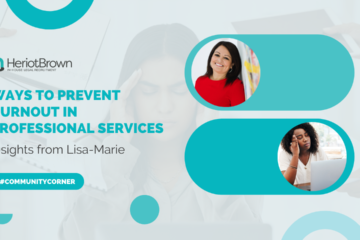Show of hands, how many times have you heard about the importance of mentorship? Not new, is it! That was my first thought when I heard about mentorship. Mentors are becoming increasingly accessible and growing in importance in the legal industry.
If you didn’t think that, great! Because this is not your standard conversation about mentorship. We will be discussing how to harness the power of socially mobile mentorship in the legal industry as a private practice or in-house lawyer. As Chair of NRG Lawyers, we run a development programme for non-Russell group students and graduates (which you can join as a mentor here: https://docs.google.com/forms/d/e/1FAIpQLSf05rYyt7Mk3xJqQpKVamI2kvxXLrzXsDy85P3sEtPnahaJVQ/viewform?usp=sf_link) and we regularly find that the best form of mentorship typically involves a mentor and mentee who either describe themselves as socially mobile or appreciate the importance of social mobility in the relationship or the wider industry. But why should we harness this? Here’s seven reasons why.
Mentees’ perceived weaknesses become strengths
Usually, in mentor and mentee relationships, the mentor aims to guide the mentee in the right direction. This would mean the mentor takes the mentee under their wing and shows them how to succeed in the legal industry. Giving applications tips and guidance, interview practice or being a sounding board for decisions are general examples of how this would happen tangibly. However, when a mentor or mentee is socially mobile, or appreciates the importance of being socially mobile, there is usually a level of imposter syndrome that comes from attending state school, being first generation to go to university or coming from a low income household, particularly in the legal world. By appreciating the importance of being socially mobile, you not only raise the confidence of mentees who do not come from privileged backgrounds, but more importantly you can allow them to understand the value of experiences they may have initially thought was a disadvantage in a legal role. This could allow them to see their weaknesses as strengths in the application process and give them different tools to thrive in the process that they wouldn’t normally have.
Mentors strengthen inclusive leadership qualities
It is without doubt that mentoring relationships typically benefit the mentee more than the mentor. After all, the mentee will be the one applying for opportunities and looking to get into the industry with the help of the mentor. However, mentors typically experience, from my perspective, an increased ability to engage in inclusive leadership by appreciating social mobility within a mentoring relationship. By engaging with a mentee who is socially mobile or understanding how they experience separate challenges, the mentor typically understands how to navigate relationships at work better. This provides them with the impetus to take the lead in company wide projects more easily, deal with clients better from a wider range of backgrounds and, most importantly, show leadership skills that includes colleagues from socially mobile backgrounds in workloads, allowing them to demonstrate skills required for appraisals and performance reviews.
The legal profession reflects more on traditional cultural practices
Whilst there are benefits to the mentors and mentees by engaging in a socially mobile mentoring relationship, there are wider industry benefits too. By having more conversations with social mobility at the forefront, it becomes abundantly clear that the experiences of lawyers and those from socially mobile backgrounds are not the same. In order to close that gap of knowledge and understanding, there has to be an appreciation that there is a difference in culture. This can easily lead to a wider conversation about what we should prioritise as an industry in the way we do things. How should we interact with clients? How important should alcohol play a part in socials? What kind of conversations help people feel comfortable in the workplace? What conversations are unacceptable in the workplace? These reflective questions are more common when you have more mentoring relationships with socially mobile candidates. There has to be new ways for socially mobile candidates to build relationships as they may not have as much access to resources or opportunities as candidates from more privileged backgrounds.
Strengthened confidence in identities at work
As discussed earlier, although a mentoring relationship benefits the mentee more, a mentor can develop qualities that can help them excel in different capacities at work. One of the best developed qualities is confidence in their identity, particularly if they are from a socially mobile background or encourage more conversations on socially mobile backgrounds. In the legal industry, the intersections between class and other protected characteristics are not seen in the senior positions. This means that if you are from a more socially mobile background, and are junior, it is less likely you will be able to relate to more senior colleagues if you do not come from the same background. By encouraging socially mobile mentorship, there is more confidence in embracing parts of the identity that may be avoided when doing client focused work.
Status quo and DEI statistics more frequently challenged
In addition to strengthening confidence in identity at work, this also leads to status quo and DEI statistics being challenged more. As the legal industry seeks to become more diverse and inclusive, there is a growing appetite to innovate the legal space and challenge conventional practices. Advocating for socially mobile mentorships will spotlight more development in strategies being adopted by senior management of organisations. This will allow the companies to improve their understanding of cultural challenges that exist within organisations, thereby increasing employee engagement and celebrating employees who use their diversity for positive difference to benefit the business.
Improved outcomes to report in social mobility index
Although this is not directly measurable through socially mobile mentorships, as this would assess the impact you make across the recruitment and wider processes, it can play a good part in raising a company’s profile on social mobility. More socially mobile mentorships will drive better understanding of how to create an environment where lawyers can thrive across the business, particularly through socially mobile mentorship relationships. This could easily lead to better policies and practices in place where lawyers learn from the next generation of lawyers from non-traditional backgrounds that can help spotlight social mobility in a unique and authentic way.
Increased empathy for different journeys into law
There are non-tangible outcomes that are equally as important when considering harnessing the power of socially mobile mentorship. Increasing empathy for different journeys into law may not increase revenue or profit, but it can lead to better retention rates and decrease attrition rates. Unfortunately, I do not have the relevant testimonials and statistics to quantify this (as an opinion is only true if it’s backed up by data nowadays) however, having spoken to multiple lawyers in the industry, loneliness, a lack of empathy and cultural isolation are key factors in many lawyers leaving companies. Looking at socially mobile mentorship as a way to increase empathy for different journeys into law may build better bonds in the workforce and improve the quality of relationships could be the key pillar in cultural improvement.
And there you have it! I’d love to hear your perspectives on whether you believe socially mobile mentorship is important. If you have any thoughts, or just want to bond over your love of social mobility, you can reach me on [email protected]
Written by: Akil Hunte, Chair at NRG Lawyers

